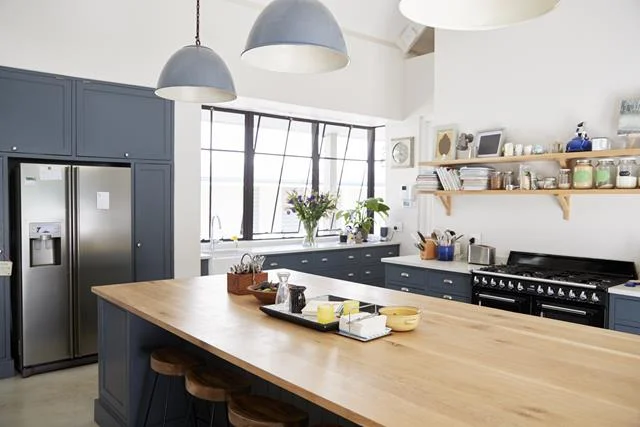Are you passionate about design and creating beautiful spaces? Have you ever wondered how to turn that passion into a career as a home decorator? In this article, we will explore the exciting world of home decorating and what it takes to succeed in this industry.
Home decorating is much more than just arranging furniture or picking out paint colors. It involves understanding design principles, staying up-to-date with trends, and creating spaces that reflect the personalities and lifestyles of the people who live in them. If you are considering a career in home decorating, it’s important to assess whether this field is right for you.
In order to become a successful home decorator, there are several steps you need to take, from obtaining the necessary education and training to building a strong portfolio and networking within the industry. Additionally, finding your niche within the broader field of interior design and home styling is crucial for carving out a unique space for yourself in the market.
Let’s delve deeper into these key elements of becoming a home decorator and how you can set yourself up for success in this rewarding profession.
The Passion for Design
Are you passionate about creating beautiful spaces and transforming homes? Do you have a keen eye for design and an innate sense of style? If so, a career in home decorating may be right for you. However, before pursuing this path, it’s important to assess whether your passion for design aligns with the reality of being a home decorator.
Here are some key factors to consider when determining if home decorating is the right career choice for you:
1. Creativity: Home decorating requires a high level of creativity and imagination. You should be able to conceptualize and execute unique design ideas that reflect your client’s preferences while also incorporating your own artistic flair.
2. Attention to Detail: From selecting the perfect color palette to choosing the right accessories, home decorating involves paying close attention to detail. If you have a meticulous nature and enjoy focusing on the finer elements of design, this could be the ideal career path for you.
3. Client Interaction: As a home decorator, you will often work closely with clients to understand their vision and bring it to life. Strong communication skills and the ability to build rapport with diverse personalities are essential in order to effectively collaborate with clients.
4. Adaptability: The world of interior design is constantly evolving, with new trends emerging regularly. To thrive as a home decorator, you must be open to learning and adapting to changes within the industry.
Considering these factors can help you determine if you have the passion and qualities needed to become a successful home decorator.
– Are you creative and imaginative?
– Do you pay attention to details?
– Can you effectively communicate and collaborate with clients?
– Are you adaptable and open-minded towards industry trends?
Ultimately, having a genuine passion for design and the ability to answer “yes” to these questions is indicative that pursuing a career in home decorating could be an excellent fit for your talents and interests.
Education and Training
Aspiring home decorators often wonder how to begin their journey in the industry. While a natural eye for design is essential, education and training can provide the necessary foundation to succeed in the field of home decorating.
Formal Education vs. Informal Training
Many successful home decorators have pursued formal education in interior design or related fields. A degree in interior design can provide a comprehensive understanding of design principles, space planning, color theory, and more. However, formal education is not the only path to becoming a home decorator. Informal training through workshops, online courses, and self-study can also equip individuals with the knowledge and skills needed to thrive in the industry.
Certification and Credentials
Obtaining certification or credentials from reputable organizations can significantly enhance one’s credibility as a home decorator. Organizations such as the American Society of Interior Designers (ASID) or the Interior Design Continuing Education Council (IDCEC) offer certification programs that validate an individual’s expertise in the field.
Practical Experience
Beyond formal education and certifications, practical experience is invaluable for aspiring home decorators. Internships with established interior designers or home decorating firms can provide hands-on experience and insight into the day-to-day responsibilities of a decorator. Additionally, taking on small projects for friends and family members can help aspiring decorators hone their skills and build a portfolio.
Building a Portfolio
- Select Your Best Work: Choose a selection of your best projects that highlight your style, creativity, and attention to detail. Include a variety of designs to demonstrate your versatility as a home decorator.
- Quality Photography: Invest in professional photography to capture the beauty of your work. High-quality images will make your portfolio stand out and give potential clients a true sense of your design aesthetic.
- Create a Digital Portfolio: In addition to physical copies, create a digital portfolio that can be easily shared with clients and potential employers. This can include a website, social media pages, or online portfolios on design platforms.
- Before and After Shots: Including before and after photos in your portfolio will showcase the transformative power of your designs. It allows clients to see the potential of their own space through your work.
- Client Testimonials: Incorporate client testimonials or reviews into your portfolio to provide credibility and demonstrate customer satisfaction with your work.
By following these steps, you can effectively showcase your skills and style as a home decorator through a well-curated portfolio that sets you apart in the industry.
Networking and Building Relationships in the Industry
Join Professional Associations
One of the best ways to build relationships in the home decorating industry is by joining professional associations such as the Interior Design Society or the American Society of Interior Designers. These associations provide opportunities for networking, attending industry events, and connecting with other professionals in the field. By becoming a member, you can gain access to valuable resources, mentorship opportunities, and industry insights.
Attend Industry Events and Workshops
Attending industry events, trade shows, and workshops is another effective way to network and build relationships with others in the home decorating industry. These events provide a platform for meeting potential clients, collaborating with other professionals, and keeping up-to-date with the latest trends and innovations in home decorating.
Utilize Social Media
In today’s digital age, social media has become a powerful tool for networking and building relationships in any industry. As a home decorator, it’s important to establish a strong presence on platforms like Instagram, Pinterest, and Houzz. By showcasing your work, engaging with followers, and connecting with other professionals online, you can expand your network and reach potential clients who are seeking your expertise.
By actively participating in professional associations, attending industry events, workshops, and utilizing social media effectively, you can build meaningful relationships within the home decorating industry. These connections can lead to new opportunities for collaborations, projects, referrals from fellow professionals ,and ultimately help you advance your career as a home decorator.
Finding Your Niche
When considering a career in home decorating, it’s important to understand the distinction between interior design and home styling. Interior design involves a more technical and formal approach to decorating spaces, often requiring a degree and specific certifications. On the other hand, home styling is more focused on the aesthetics and visual appeal of a space, with an emphasis on using what you already have to transform a room.
For those interested in pursuing interior design, obtaining a degree in interior design or architecture is essential. Many states also require interior designers to be licensed, which typically involves passing the National Council for Interior Design Qualification (NCIDQ) exam. This rigorous process ensures that individuals practicing interior design have the necessary knowledge of building codes, project management, and space planning.
On the other hand, if you are more drawn to the visual aspect of decorating and transforming spaces, then home styling may be the path for you. Home stylists often work with clients who want to refresh their living spaces without making major structural changes. While not as regulated as interior design, having an eye for design and a strong portfolio of successful projects is crucial for building a career in home styling.
In both fields, continuous education and staying up-to-date with industry trends are important for success. Taking courses in color theory, spatial planning, and furniture styles can help decorators refine their skills and expand their knowledge base.
Additionally, networking within the industry and building relationships with suppliers can provide valuable opportunities for growth and collaboration. Whether choosing interior design or home styling as a career path, finding your niche will allow you to focus on what truly inspires you in the world of home decorating.
| Interior Design | Home Styling |
|---|---|
| Requires a degree in interior design or architecture | Focused on using existing items to transform spaces |
| Licensing may be required | Less regulated than interior design |
| Involves knowledge of building codes and space planning | Emphasis on aesthetics and visual appeal |
Starting Your Own Home Decorating Business
First and foremost, it’s essential to have a strong foundation in interior design or home styling. Many aspiring home decorators pursue formal education in these fields by obtaining a degree in interior design or completing certification programs in home styling. These programs provide the necessary knowledge of color theory, space planning, furniture arrangement, and other fundamental aspects of design.
In addition to education and training, building a portfolio is crucial when starting your own business as a home decorator. Potential clients will want to see examples of your work and understand your unique style and aesthetic. Whether it’s through internships, freelance projects, or pro bono work for friends and family, compiling a diverse portfolio will help showcase your skills and attract potential clients.
Lastly, marketing yourself is key to success in the home decorating industry. Creating a professional website, utilizing social media platforms to showcase your work, networking with industry professionals, and participating in local events or trade shows are all effective ways to market yourself as a home decorator.
| Aspect | Description |
|---|---|
| Education and Training | Obtain a degree in interior design or complete certification programs in home styling. |
| Building a Portfolio | Compile diverse examples of work through internships, freelance projects, or pro bono work. |
| Marketing Yourself | Create a professional website; use social media; network with industry professionals; participate in local events or trade shows. |
The Key to Success
If you have a passion for design and an eye for creating visually appealing spaces, then a career in home decorating may be the right fit for you. However, in order to become a successful home decorator, it’s essential to learn how to effectively market yourself and your skills. Marketing yourself as a home decorator is crucial for attracting clients and building a successful business.
One of the key aspects of marketing yourself as a home decorator is showcasing your skills and style through a strong portfolio. Potential clients want to see examples of your work and understand your design aesthetic before they entrust you with their homes. Make sure to include high-quality photographs of your past projects, as well as any certifications or training that demonstrate your expertise in the field.
Networking and building relationships in the industry is another important aspect of marketing yourself as a home decorator. Attending design events, joining industry organizations, and connecting with other professionals can help you get your name out there and potentially lead to new opportunities. Building a strong network can also provide valuable referrals from satisfied clients or other industry professionals.
In addition to showcasing your work and networking, embracing digital marketing strategies can also be beneficial for marketing yourself as a home decorator. Utilize social media platforms like Instagram and Pinterest to share images of your work, engage with potential clients, and build an online presence. Creating a professional website where potential clients can learn more about your services and view your portfolio is also crucial for marketing yourself as a home decorator in today’s digital age.
Embracing Trends and Staying Inspired in the Home Decorating Industry
As a home decorator, staying inspired and embracing trends is crucial to your success in the industry. With the ever-changing landscape of design and décor, it’s essential to stay updated on the latest trends and find inspiration in new styles and techniques.
Whether it’s through attending design conferences, following industry influencers, or simply staying observant of current interior design movements, keeping your finger on the pulse of the industry will set you apart as a knowledgeable and innovative home decorator.

One of the best ways to stay inspired in the home decorating industry is by continuously seeking out new ideas and exploring different sources of inspiration. This could involve visiting art galleries, studying architectural designs, or even traveling to different cities and countries to experience diverse design aesthetics firsthand. By immersing yourself in various artistic influences, you’ll be able to develop a unique style that sets you apart from other decorators in the field.
In conclusion, becoming a successful home decorator requires not only passion for design but also dedication to continuous learning and evolution. By staying inspired and embracing trends within the industry, you can establish yourself as a reputable and sought-after decorator.
With a strong foundation in education and training, a standout portfolio showcasing your skills, and effective networking strategies, you can confidently embark on your journey as a professional home decorator. So keep learning, stay inspired, and let your creativity shine.
Frequently Asked Questions
What Do You Need to Be a Decorator?
To be a decorator, you need to have a good eye for design, creativity, and attention to detail. It’s important to have knowledge of color theory, spatial arrangements, and different decorating styles. Good communication and problem-solving skills are also essential when working with clients.
Is Home Decor a Good Career?
Home decor can be a rewarding career for those who are passionate about creating beautiful and functional spaces. It offers the opportunity to unleash creativity while helping clients achieve their dream homes. However, like any career, it requires hard work, dedication, and networking to succeed in the industry.
Can You Call Yourself an Interior Decorator Without a Degree?
Technically, you can call yourself an interior decorator without a degree as there are no specific educational requirements for this profession. However, having a degree or certification in interior design can provide credibility and enhance your skills and knowledge in the field. Experience and a strong portfolio are also crucial for establishing yourself as a reputable interior decorator.

Hello, lovely readers! I’m Sheila Collins, and I’m delighted to be your trusted guide on this exciting journey of home improvement, design, and lifestyle. As the founder and editor-in-chief of Home Guide Blog, I’m passionate about all things related to homes, and I’m here to share my knowledge, experiences, and insights with you.





